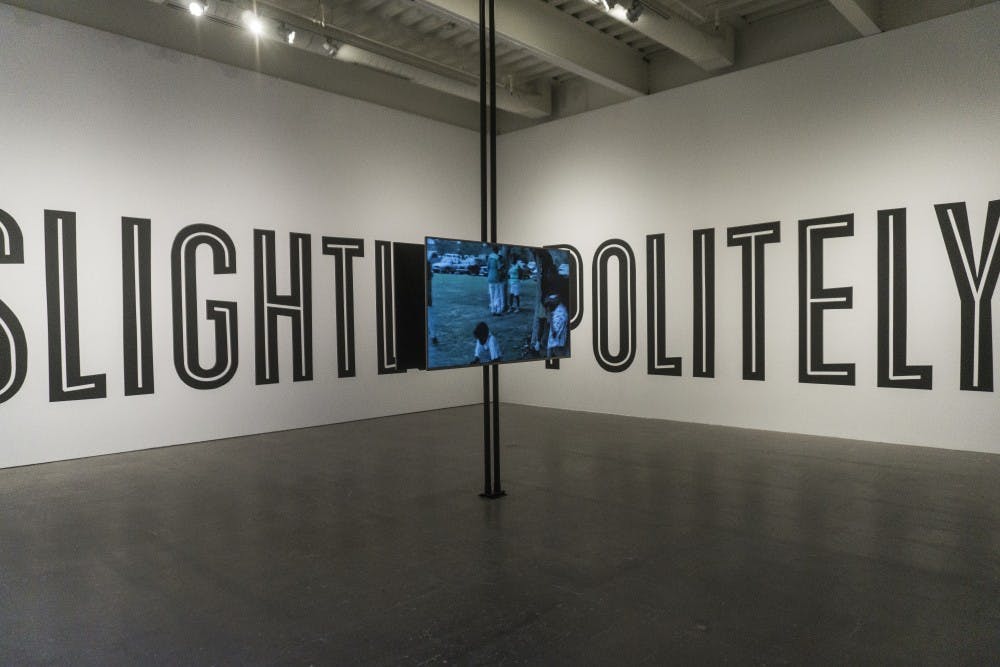Art helps us understand language, just as language helps us understand art. “Speech/Acts”, one of the Institute of Contemporary Art’s fall shows, is borne from this duality. On view now through December 23, the exhibition features the work of six artists and two poets who explore experimental black poetry. They consider how black American experiences have been shaped by social and cultural language constructs.
The exhibition features collage, drawing, text-based installation, and video – all aiming to dissect the structural elements of texts sourced from poetry, pop culture, and the in–between. The museum has promised an immersive and interactive environment, and the show delivers. Experiencing the work is actually best described according to the phenomenology of the exhibition title. The term “speech act” characterizes an utterance considered as an action – a description of a given reality that, when spoken, alters the social reality it describes. Viewers will absorb how “Speech/Acts” so quietly and poignantly exercises that agency.
It’s worth elaborating on the great value of this show. Fortunately, the ICA’s effort to meaningfully engage the exhibition’s following, particularly Penn students, speaks for itself. There exists a syllabus outlining a series of six reading group sessions which will take place Saturdays 1–4pm at the ICA (36th and Sansom) beginning September 23rd. The texts to be discussed are fundamentally related to and/or take the form of subject matter in the work of each featured artist and poet. These sessions will raise questions and perhaps answer them. They will offer both a preface and a continuation to “Speech/Act’s” material exhibition.
Meg Onli, Assistant Curator at the ICA and organizer of “Speech/Acts”, explains that the reading group concept is a method for the ICA to collaborate with Penn departments. She is working with Creative Writing professor Julia Bloch and Theater professor Brooke O'Harra, as well as PhD students Davy Knittle and Amber Rose Johnson to create a “rigorous and fun way for people to engage with the work”. The first session will include an installation walk–through of artist Jibade–Khalil Huffman’s featured work, which uses some of reading assignment 1 (Claudia Rankine’s Citizen) as a script.
Artists constantly grapple with the problematic constraints of “the institution”. Often, they will develop unique methods of operating outside conventional frameworks. As an institution, the ICA is demonstrating an exemplary approach to mediating those constraints on behalf of its artists and on behalf of our community.

